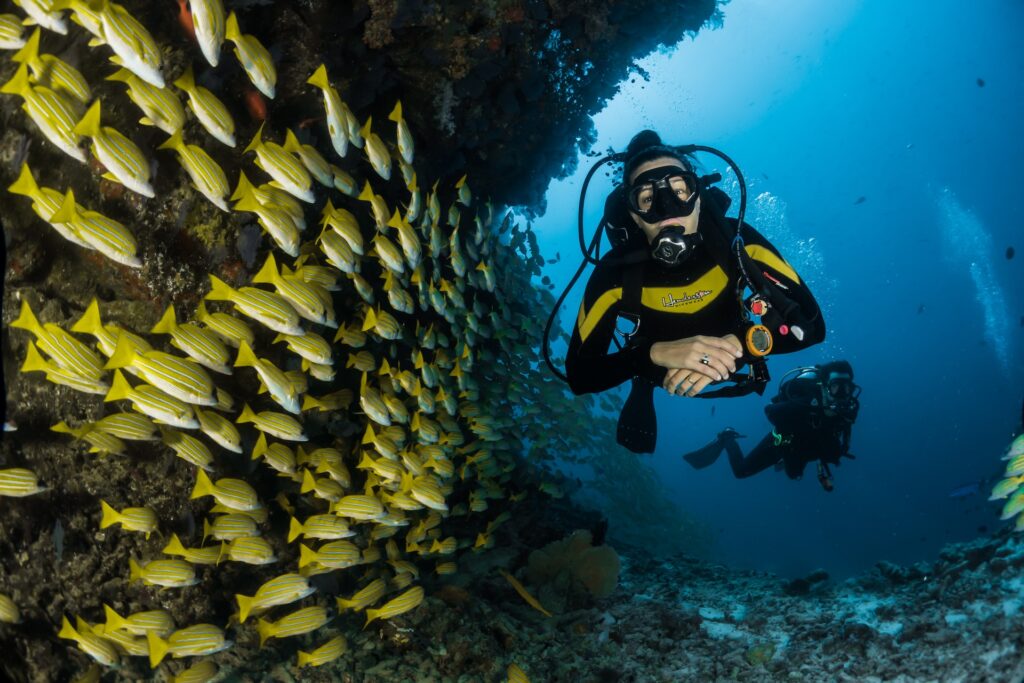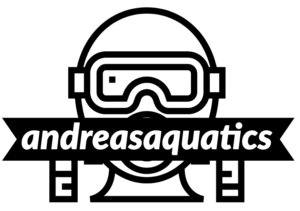
Imagine descending into the depths of the ocean, exploring vibrant coral reefs, and encountering fascinating marine life up close. SCUBA diving offers this extraordinary opportunity to connect with the underwater world. To embark on this adventure safely and responsibly, you need proper training and certification. In this guide, we will take you through the steps to get certified in SCUBA diving, from choosing the right course to becoming a certified diver ready to explore the wonders beneath the sea.
Why Get Certified in SCUBA Diving?
Before we dive into the process of certification, let’s first understand why becoming a certified SCUBA diver is essential:
- Safety: SCUBA diving involves potential risks, including changes in pressure, underwater navigation, and marine life encounters. Proper training ensures that you can dive safely and handle emergencies effectively.
- Environmental Responsibility: Certified divers are educated about the importance of marine conservation and responsible diving practices. Certification programs emphasize the protection of marine ecosystems and the responsible treatment of marine life.
- Access to Dive Sites: Many popular dive sites require proof of certification for entry. Being certified opens up a world of diving opportunities in locations around the globe.
- Skill Development: Certification courses teach you essential diving skills, including buoyancy control, equipment use, and emergency procedures. These skills enhance your overall diving experience.
Now that we understand the significance of SCUBA diving certification, let’s explore the steps to becoming a certified diver:
Step 1: Choose the Right Certification Agency
The first decision you’ll need to make is which SCUBA diving agency to train with. Several internationally recognized agencies offer certification programs. Some of the most well-known agencies include:
- PADI (Professional Association of Diving Instructors): PADI is the world’s largest and most widely recognized SCUBA diving organization. They offer a range of courses, from beginner to professional levels.
- NAUI (National Association of Underwater Instructors): NAUI is known for its emphasis on safety and diver competence. They offer comprehensive training programs for recreational and technical diving.
- SSI (Scuba Schools International): SSI provides flexible and customizable training programs. They focus on digital learning materials and offer a free digital logbook.
- SDI/TDI (Scuba Diving International/Technical Diving International): SDI/TDI specializes in technical diving training. They provide courses for advanced and technical divers.
Choose an agency that aligns with your learning preferences, location, and goals. Most agencies have a user-friendly website that can help you find an affiliated dive center near you.
Step 2: Enroll in a SCUBA Diving Course
Once you’ve chosen an agency, it’s time to enroll in a SCUBA diving course. Here’s what you can expect from the typical certification process:
- Open Water Diver Course: This is the entry-level certification program for beginners. It covers essential diving knowledge, skills, and safety procedures. The course usually consists of three main components:
- Knowledge Development: You’ll learn about dive theory, equipment, safety procedures, and marine life through self-study or classroom sessions.
- Confined Water Training: In a controlled environment like a swimming pool, you’ll practice essential diving skills, including buoyancy control, mask clearing, and underwater navigation.
- Open Water Dives: You’ll apply what you’ve learned in real-life diving scenarios under the supervision of an instructor. Typically, you’ll complete a series of open water dives in a natural environment, such as a lake or ocean.
- Advanced Open Water Diver Course: After completing the Open Water Diver course, many divers choose to take the Advanced Open Water Diver course. This program allows you to gain experience in various diving specialties, such as deep diving, navigation, night diving, and more.
- Specialty Courses: Beyond the Open Water and Advanced courses, you can explore specialty courses to hone specific skills or interests. These courses include underwater photography, wreck diving, and underwater naturalist.
- Rescue Diver Course: This course focuses on enhancing your diving skills and teaches you how to assist other divers in emergency situations. It’s a critical step toward becoming a more competent and responsible diver.
Step 3: Complete Training Requirements
To earn your certification, you must meet the training requirements specified by the certification agency and your instructor. These typically include:
- Classroom or Online Learning: Complete the knowledge development portion of the course, either through classroom sessions or online e-learning modules. This will cover dive theory, safety procedures, and equipment use.
- Confined Water Training: Successfully demonstrate your skills in confined water sessions. These sessions provide an opportunity to practice essential diving skills in a controlled environment.
- Open Water Dives: Complete the required number of open water dives with your instructor. These dives will allow you to apply what you’ve learned in real-world diving conditions.
- Written Exams: Pass written exams to demonstrate your knowledge of dive theory, safety, and procedures. These exams may be conducted online or in a classroom setting.
Step 4: Log Dives and Gain Experience
After receiving your certification, it’s time to start logging dives and gaining experience. Most agencies recommend logging a minimum number of dives to maintain and advance your skills. Dive regularly, explore different dive sites, and continue to learn and grow as a diver.
Step 5: Consider Advanced and Specialty Certifications
Once you’re a certified Open Water Diver, you can explore advanced and specialty certifications to expand your diving knowledge and experience. Some popular options include:
- Advanced Open Water Diver: This course allows you to explore new diving environments and specialties, such as deep diving, underwater navigation, and night diving.
- Enriched Air Nitrox: Learn to dive with enriched air nitrox, which can extend your bottom time and reduce post-dive fatigue.
- Rescue Diver: Enhance your skills in diver rescue and emergency management, making you a more responsible and safety-conscious diver.
- Specialty Courses: Explore various specialty courses based on your interests, such as wreck diving, underwater photography, and drift diving.
Step 6: Join a Dive Community
Diving is a social activity, and joining a dive community can enhance your experience. Consider becoming a member of a local dive club or participating in dive trips organized by your dive center. Engaging with fellow divers can lead to new friendships, diving opportunities, and valuable knowledge sharing.
Getting certified in SCUBA diving is a rewarding journey that opens up a world of underwater adventures. By choosing the right certification agency, enrolling in a suitable course, and completing the necessary training requirements, you can embark on a safe and exciting diving adventure. Remember that diving is a lifelong learning experience, and there are always opportunities to advance your skills and explore new aspects of the underwater world. So, take the plunge, get certified, and start exploring the incredible depths of the ocean.
